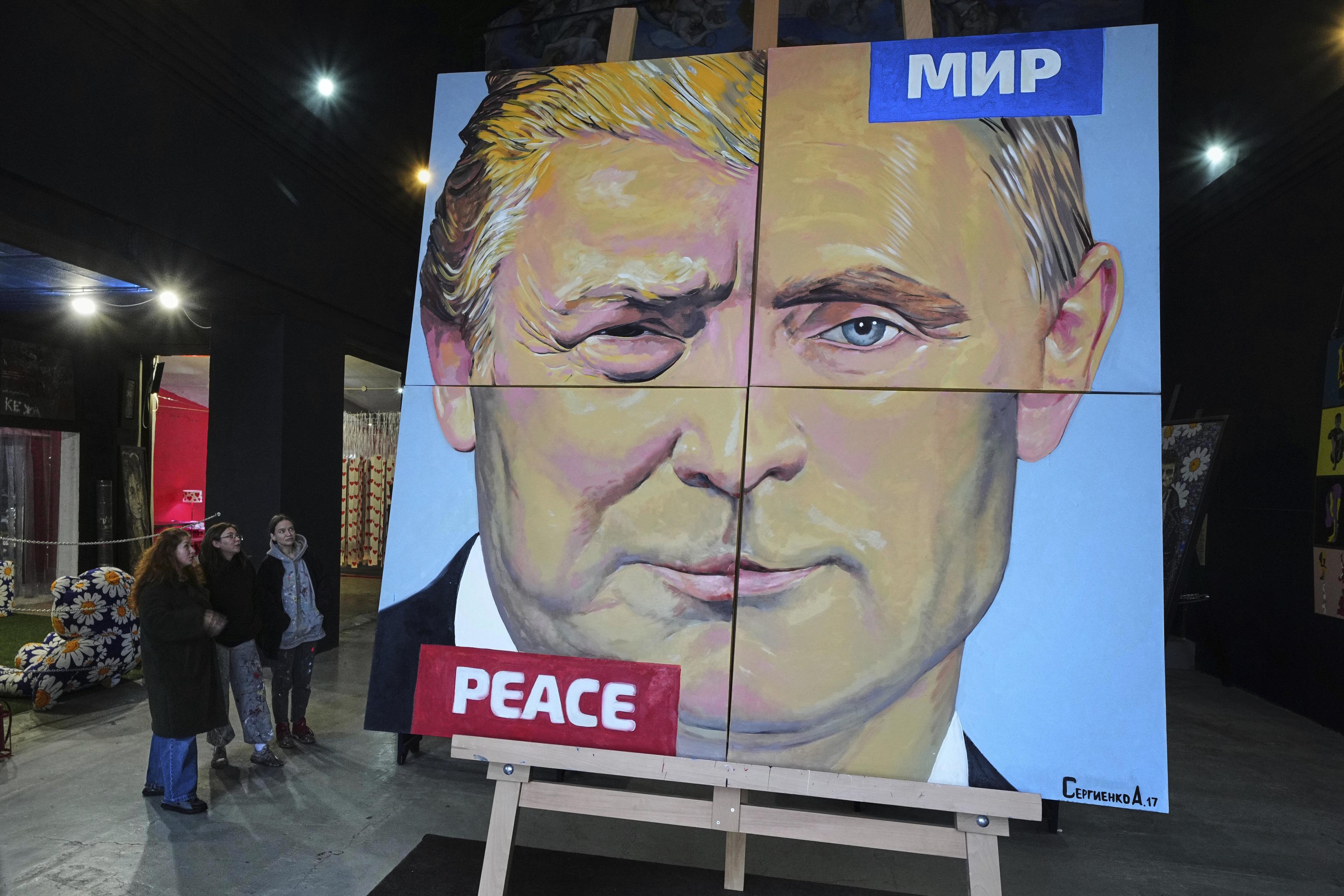Trump continues to try to mediate between Russia and Ukraine to achieve a peace agreement, although it doesn't seem easy. The US president already made a historic statement during Zelenski's visit to the White House, with a commented clash between them. Now, Trump's anger is directed at Vladimir Putin, whom he said on Sunday in an interview with NBC "got very angry" when his Russian counterpart criticized the credibility of the Ukrainian president, as reported by Efe. Trump added that he will impose new tariffs on Moscow if they do not facilitate the agreement to end the war.
"If Russia and I do not reach an agreement to stop the bloodshed in Ukraine, and if I believe it was Russia's fault, which it may not be, I will impose secondary tariffs on oil, on all the oil coming out of Russia," Trump declared in a phone call with NBC early Sunday morning.
Trump emphasized that this would mean that "if you buy oil from Russia, you can't do business in the United States" and that the tariff could go up to 50%.
Furthermore, he detailed that the tariffs would take effect in a month if there is no ceasefire agreement, that Putin knows he is angry, but that he has "a very good relationship with him" and that "the anger will dissipate quickly... if he does the right thing". In fact, Trump stated that they both plan to speak again this week.
The statements by the US president come after Putin proposed on Friday to replace Zelenski's government with a temporary administration to hold elections in Ukraine and ultimately "begin negotiating a peace agreement."
"A temporary government could be introduced in Ukraine under the auspices of the UN, the US, European countries, and other partners," Putin stated at the time.
According to Trump, these words angered him greatly, but the reality is that they are in line with previous comments by the US president, who just over a month ago called Zelenski a "dictator without elections" and then berated him in the Oval Office of the White House to the point of asking him to leave.
Trump informed Newsmax in an interview aired on Tuesday that Russia might be "dragging its feet," but he wants to see the end of the war.
On the same day, the White House announced that agreements had been reached with Russia and Ukraine to ensure "safe navigation" in the Black Sea and develop "measures to implement" the ban on attacks against energy facilities in both countries.
The US already has various sanctions imposed on Russia, but according to US media, the government considered easing them as part of a path towards improving relations.
However, the Kremlin has emphasized that its approval for the ceasefire agreement is subject to the lifting of sanctions.
"Issues" for Zelenski if he doesn't sign the rare earth agreement
Trump also had harsh words for Zelenski, accusing him of "trying to back out" of an agreement on rare earths with the United States and warned that, if not finalized, he would face "major problems."
"I think Zelenski, by the way, is trying to back out of the rare earth agreement, and if he does, he will have very serious problems," the Republican emphasized to the press as he traveled back to Washington on Air Force One.
Trump recalled that he had reached an agreement on rare earths with Zelenski and now the Ukrainian president "wants to renegotiate it."
"He wants to be a member of NATO. Well, he was never going to be a member of NATO. He understands that, so if he seeks to renegotiate the agreement, he will face major problems," stated the US president.
The issue of rare earths has been a key point in the negotiations driven by Trump to achieve a peace agreement in Ukraine, a country believed to hold 5% of the world's rare earth reserves.
